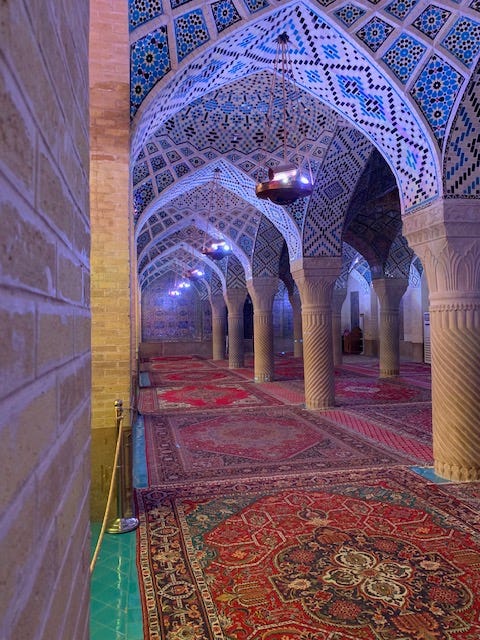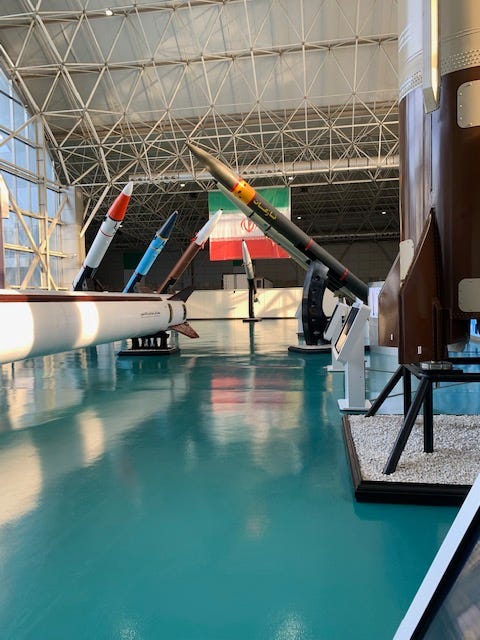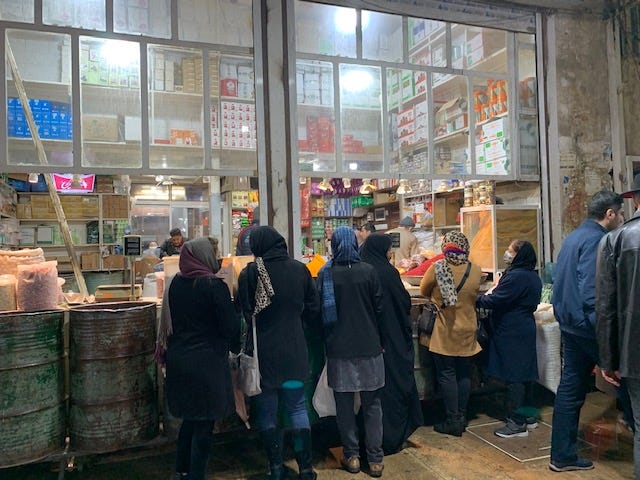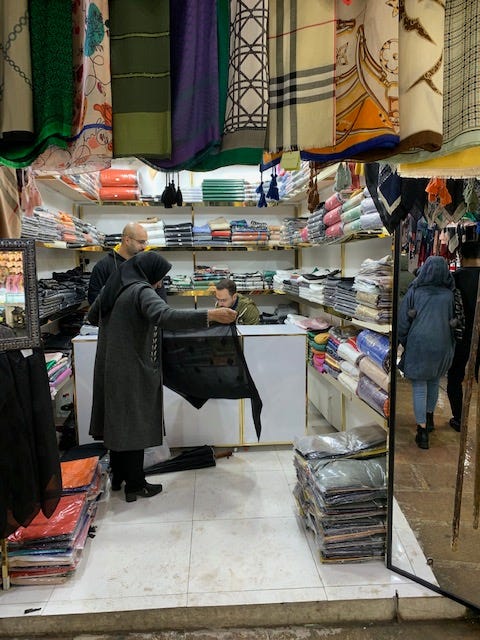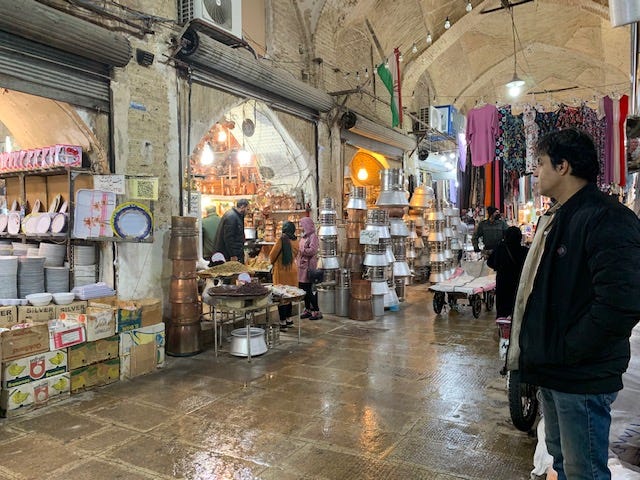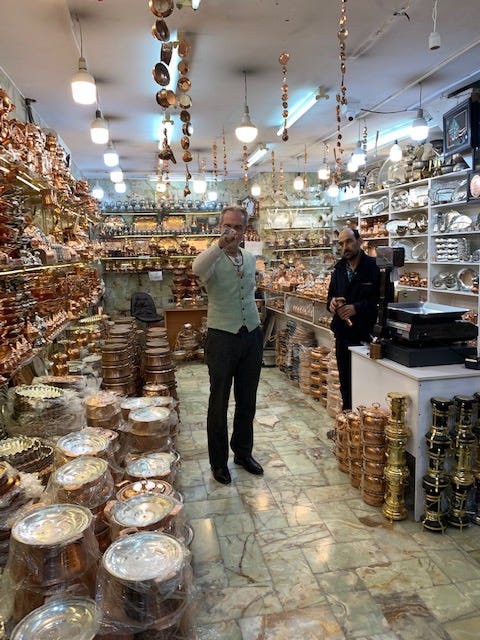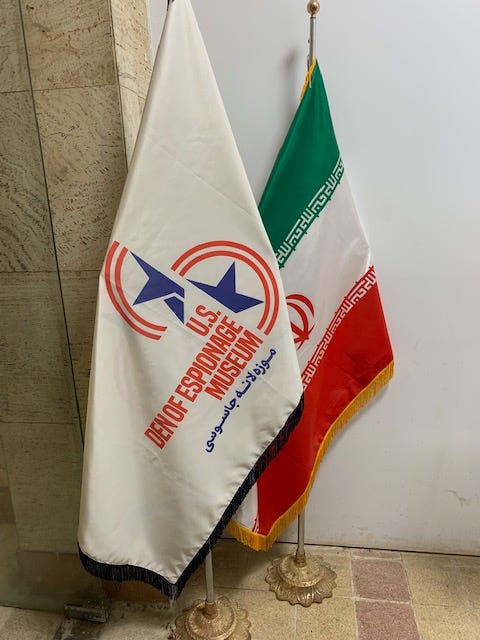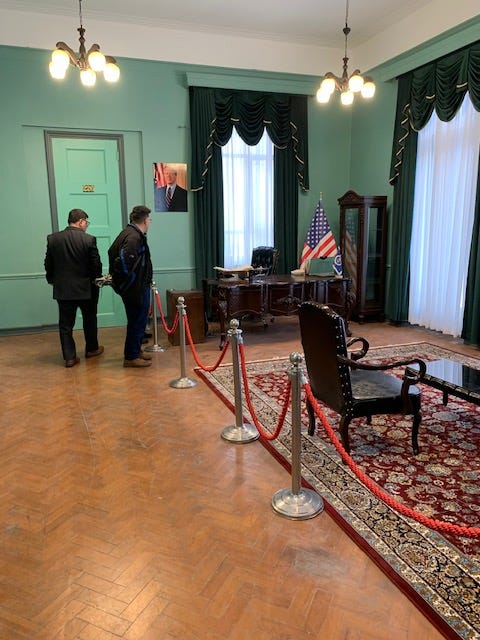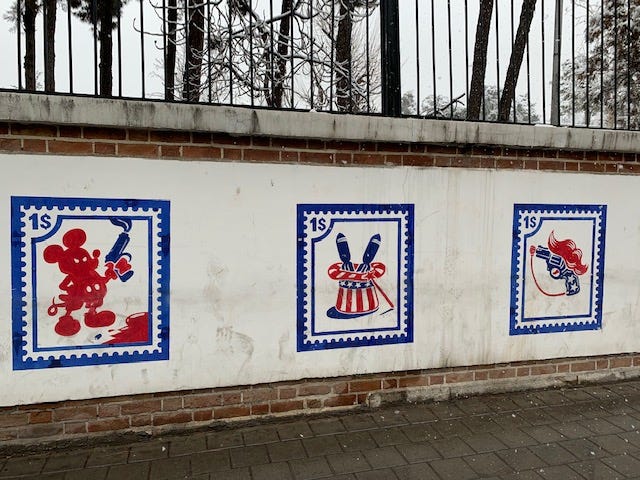Modern Iran — A Study in Contrasts. Failed U.S. Sanctions Regime
Part III
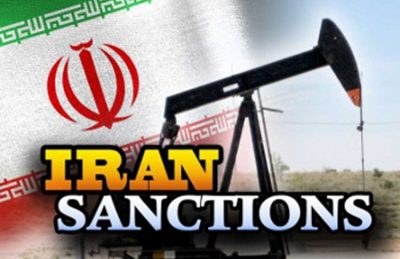
All Global Research articles can be read in 51 languages by activating the Translate Website button below the author’s name.
To receive Global Research’s Daily Newsletter (selected articles), click here.
Click the share button above to email/forward this article to your friends and colleagues. Follow us on Instagram and Twitter and subscribe to our Telegram Channel. Feel free to repost and share widely Global Research articles.
***
Read Part I and II:
Women’s Rights in Modern Iran. A Study in Contrasts
By , March 28, 2023
Modern Iran’s Advanced Information and Communication Technology
By , April 01, 2023
The Beginning. According to Columbia University in New York City, an allegedly well-regarded school,
The United States has had sanctions on Iran for decades, with the first measures imposed against Iran in the early 1980s, responding to Tehran’s support for terrorism and extremism. Starting in 1995, these sanctions were expanded in response to continued Iranian sponsorship of terrorism and pursuit of weapons of mass destruction (WMD) to include a full, comprehensive embargo on bilateral trade (imposed via E.O. 12957 and E.O. 12959 signed by President Clinton (D-Ark.)…
Building on the foregoing nonsense about Iran’s promotion of terrorism, extremism, and weapons of mass destruction, the corrupt, incompetent, illegitimate, and racist American government continued to expand sanctions on Iran.
Faced with little progress, the United States then went further.
…In 2010, the United States imposed new, secondary sanctions that increased the pressure on Iran by compelling foreign companies and banks to withdraw from Iran. In 2012, these efforts were matched by pressure on the customer that bought Iranian oil to reduce their purchases by significant amounts every 180 days or face losing access to the United States. The result was a 1.4 million barrel per day decline in Iranian exports relative to pre-sanctions levels… Since that time, both the Obama and Trump Administrations continued to implement these sanctions, including through new designations of illicit Iranian actors and their foreign counterparts.
Naturally enough, the Zionist-controlled U.S. government ignored Israel’s unknown and unknowable nuclear, biological, and chemical weapons. Unlike Iran, the Apartheid Entity has never signed and continually refuses to sign the Treaty on the Non-Proliferation of Nuclear Weapons. And the United States ignores its own law on aid to nuclear states which decline to subscribe to the Non-Proliferation Treaty.
The Foreign Assistance Act of 1961 was amended by the Symington Amendment (Section 669 of the FAA) in 1976. It banned U.S. economic, and military assistance, and export credits to countries that deliver or receive, acquire or transfer nuclear enrichment technology when they do not comply with IAEA regulations and inspections. This provision, as amended, is now contained in Section 101 of the Arms Export Control Act (AECA).
According to a 2023 report by the Congressional Research Service (an organization providing information to Congress):
Israel is the largest cumulative recipient of U.S. foreign assistance since World War II…To date, the United States has provided Israel $158 billion (current, or non-inflation-adjusted, dollars) in bilateral assistance and missile defense funding. At present, almost all U.S. bilateral aid to Israel is in the form of military assistance; from 1971 to 2007, Israel also received significant economic assistance.
The goal, of course, is both to strengthen Israel and to make the Iranian people so miserable that they will overthrow their own government, permitting the United States and Israel to impose a puppet regime, just as was done with the brutal and repressive Shah in 1953.
But the Sanctions Have Failed. During my nine days in Iran, traveling throughout Tehran with side trips to Shiraz and Kerman, I saw well-filled shops, well-dressed people, and horrendous day-long traffic jams. No beggars were, in my view, evident. Everyone was well fed. Flights I took were full, with every last seat taken.
But why have the sanctions flopped?
The answer looks to be very simple. Iranians are patriotic. Iranians are nationalists. Iranians are religious. But Iranian patriotism is not the flag-waving, narcissistic American version, i.e., my country, right or wrong. Rather, it is a deep-seated, solidly-anchored outlook based on 5,000 years of history. Iranians know who they are, where they’ve been, and where they’re going. Yes, there were plenty of Iranian flags and bunting on display in the days leading up to the Islamic Revolution’s 44th anniversary. But they were symbols of the country and its past, present, and future. Iranian nationalism fits perfectly into the Encyclopedia Britannica’s definition: “nationalism, [is an] ideology based on the premise that the individual’s loyalty and devotion to the nation-state surpass other individual or group interests.” Nor is Shiite Islam, Iran’s dominant creed, a surface faith. It is deeply felt and embraced by all. I saw this at Shiraz University where fellow journalists, speaking about the commonality of Christianity and Islam, were cheered and swarmed by professors and students who took their statements to heart. Iranians maintain their mosques in all their glory, demonstrating that the outward appearance of religion is just as important as its internalization.
Interior of Pink Mosque, Shiraz. Photo: J. Michael Springmann
This is entirely different from the new American ideology of identity politics. Here, people’s loyalties are to their own national, racial, ethnic, or linguistic group. And let’s not forget the novel U.S. view that women, one-half the human race, are a minority group and that there are more than two genders or sexes. And that men can become women and women, men. But need the full force and power of the central government and its toady media to do this.
Sanctions Are the Mother of Invention. Besides infuriating the people and government of the Islamic Republic, American and European sanctions, spurred on by the Zionists, have forced the Iranians to use their innate intelligence, technical skills, and built-in drive to shore up their country’s economic and military power.
Kevin Barrett, Ph.D., touched on this in his Substack article That Chinese Balloon Looks Different From Tehran [That Chinese Balloon Looks Different from Tehran (substack.com)]. In it, he commented on Iran’s impressive, indigenous missile systems, one of which is an improvement on the Russian S-300 ground to air missile system.
Tehran Aerospace Exhibit. Photo: J. Michael Springmann
Iranian-made Anti-Aircraft Missile Battery. Photo: J. Michael Springmann
Sanctions certainly haven’t closed the bazaars in Shiraz and Kerman. They were filled with people buying a wide variety of goods, whether clothing, spices, foodstuffs, or copperware.
Bazaar in Shiraz. Photo: J. Michael Springmann
Bazaar in Shiraz. Photo: J. Michael Springmann
Bazaar in Shiraz. Photo: J. Michael Springmann
Bazaar in Kerman. Photo: J. Michael Springmann
Open Air Bazaar in Kerman. Photo: J. Michael Springmann
In Tehran, at an admittedly upscale shopping mall, patronized by the well-to-do, a grocery store was full of customers seeking good things to eat and a nearby electronics shop was well-stocked with a wide variety of appealing goods.
Grocery store (Upscale shopping center). Photo: J. Michael Springmann
Electronics shop (Upscale shopping center). Photo: J. Michael Springmann
Sanctions haven’t stopped Iranian hackers from breaking into Adobe or Hollywood movie encryption. They then sell graphic design software for a fraction of the U.S. price. Western movies are readily available for viewing online.
To be sure, individuals have suffered. One contact noted that his flatscreen TV had about a third of its pixels burned out. He wanted to replace it so that he could continue watching his favorite programs. But, thanks to American sanctions and pressure on Japanese and South Korean manufacturers, a new set was beyond his income.
That’s an aggravation and disrupts his family’s entertainment. However, Iranian airlines are coping with a far more vicious attack on them and their passengers. U.S. bans on aviation parts and accessories have caused crashes killing planeloads of people. At one point, I flew on a completely-full stretch DC-9, an aircraft probably older than most of the passengers aboard her. During my time in the air, I wondered if U.S. restrictions might have caused failure of an important part of the plane or if clever Iranian mechanics had found the appropriate work-around. However, airline food in Iran certainly beats what U.S. carriers serve (or don’t serve).
But Americans Are Well-Regarded. This amazed me on several occasions. Certainly, chants of “Death to America” at the country’s national day are to be expected, despite how much they horrify the U.S. It’s the “Land of the Free and the Home of the Brave” that’s trying to destroy Iran and its people. Why should they love such a government and such a society that approves the horrors done to Iran and its populace.
And yet.
I was at the Tehran Trade and Handicrafts Fair and climbed into the cart transporting people from the parking lot to the exhibit hall. The grey-haired man sitting next to me asked my interpreter if I were Russian. When the translator said, no, I was an American, my seatmate said, in English, “Very good”.
In Shiraz, as I was coming out of my hotel room, I saw an Iranian woman dressed in black coming out of hers. I said “Salaam” (Peace, the usual Farsi greeting). She replied “Salaam” as well and asked if I were an Arab. In broken Farsi, I said no, I was an American. She smiled and gave me a thumbs up (which no longer is the obscene gesture it used to be, thanks to Western influence).
Nevertheless. Iran is ever mindful of its past. It remembers the American and British overthrow of the Mohammad Mossadegh government and the installation of the brutal, repressive Shah as a puppet. It maintains the former U.S. embassy as a “Den of Spies” and conducts tours of part of its premises. The ambassador’s office is well-kept as are the ancient encryption devices in the communications section. The signals intelligence apparatus is still on the embassy grounds. We did not see the printing press in the basement that, according to journalist Sam Husseini, had busily produced counterfeit Iranian currency for the CIA. [James Abourezk: Radical Senator – by Sam Husseini (substack.com)]
Former U.S. Embassy Tehran. Photo: J. Michael Springmann
Explanatory Flag Inside Former Embassy Entrance. Photo: J. Michael Springmann
Former Ambassador’s Office. Photo: J. Michael Springmann
Most of the former chancery is given over to various NGOs, one of which, Student News Network, interviewed me after seeing me during a question-and-answer session on OFOGH TV, an Iranian television station.
However, the wall outside is given over to cartoons lambasting American imperialism.
Anti-Imperialist Cartoons. Photo: J. Michael Springmann
COMMENT. Ultimately, there is no real conflict between U.S. and Iranian interests. Unlike America, Iran hasn’t invaded another country in centuries. Unlike the U.S., Iran is a deeply religious country built on astonishing hospitality and help toward your fellow man. There is absolutely no need for sanctions, which should be applied to the Apartheid Entity for its invasions of neighboring countries and its possession of possibly 400 nuclear weapons.
The simplest and easiest way of improving relations between the two states is to drop all sanctions, remove the 5th Fleet from the Persian Gulf, and close down the far too many U.S. bases encircling Iran.
Diplomacy, not militarism, ought to be the cornerstone of American policy towards the Islamic Republic. Remember, diplomacy is best defined as the conduct of relations between nations based on tact and common sense.
And Matt Gaetz, the Florida Republican whom Democrat journalists love to hate, has put the American war mongers into a public bind. According to RT, “On March 8, Representative Matt Gaetz introduced a resolution that would have forced congressional oversight to be applied to the continuation of America’s military occupation of Syria.” Gaetz then went further, saying ““Syria is my leadoff hitter. We’re going to take a trip around the globe. We may go to Yemen. We may have stops in Niger. We may have stops in Sudan. Maybe ultimately, we’ll end in Ukraine,” Gaetz told The Intercept about the bill, implying it would not be the last of its kind in ending American interventionism around the globe.”
He may mention Iran next.
*
Note to readers: Please click the share button above. Follow us on Instagram and Twitter and subscribe to our Telegram Channel. Feel free to repost and share widely Global Research articles.
J. Michael Springmann is an attorney, author, political commentator, and former diplomat, with postings to Germany, India, and Saudi Arabia. He previously authored, Visas for Al Qaeda: CIA Handouts That Rocked the World: An Insider’s View, recounting how the U.S. created and used Islamic Terrorism. Additionally, he penned Goodbye, Europe? Hello, Chaos? Merkel’s Migrant Bomb, an analysis of the alien wave sweeping the Continent. He currently practices law in the Washington D.C. Area. He is a frequent commentator on Arab and Russian news programs.
He is also on the Ukraine’s “Enemies List”, having questioned, inter alia, the country’s refusal to honor the Minsk Accords and for stating that it’s government is Nazified.
Featured image is from Al-Masdar News


